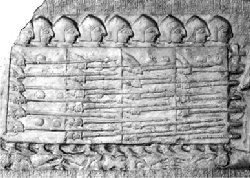 Contest
Analysis With Vectors
Contest
Analysis With VectorsContest Analysis With Vectors
A New Way of Studying Communities of Interacting Participants
![]()
Problems solvable with contest analysis include the following (among many others):
--- Strengths of various types of combatants in military engagements.
--- Athletic team strengths (especially when games are poorly distributed among the teams).
--- Chess games (down to the individual piece and including drawn games).
--- Judged contests of all kinds (diving, skating, gymnastics, beauty, etc.).
--- Pair assignments according to preferences (jobs, schools, room mates, etc.).
--- Elections (especially those in which a voter can vote for several candidates at once).
--- Alignments, strengths, and mutual support among members of legislatures.
--- Sealed-bid auctions.
--- Game theory.
![]()
The logic of the procedure is contained in a computer program (free) which uses only a set of data called a scoreboard. Anybody with a problem for which a scoreboard can be constructed can run the program and solve the problem. Contest analysis is not game theory, but it can be used to solve all game-theory problems. The formulation of appropriate scoreboards generally requires considerable thought.
Social interactions involve forces that are applied by participants upon each other. The forces can be destructive or supportive; the method works just the same either way, but any given problem must be entirely of one type or the other. (Combat would be of the destructive-force type while an election has voters supporting candidates and the forces are supportive.) These forces cannot be observed directly, but they can be computed from observable data–the data contained in the scoreboard. The computation uses a set of equations derived from the workings of a conceptual mechanical model whose interacting parts represent the interactions of the social community under study. The scoreboard entries take on a real physical meaning with this model, and the computed forces follow the rules of mechanics. The computation brings into the open the forces of social interaction which have heretofore been unmeasurable.
Problems of the type described here (sometimes called social choice) have gone unsolved for well over 200 years and have even been declared impossible to solve satisfactorily. Frustration over this is nowhere more evident than in elections, where failure to properly address the wishes of the electorate is deemed an inhibitor of democracy. The claim on this Web site is that, not only are all social choice problems solvable, they need only a single algorithm. Since this is not a trivial claim, extensive theoretical and practical discussion is presented to support it.
Next page: List of topics related to Contest Analysis. [Topics]
Contact: Alan E. Johnsrud ---------------- aejohns@erols.com